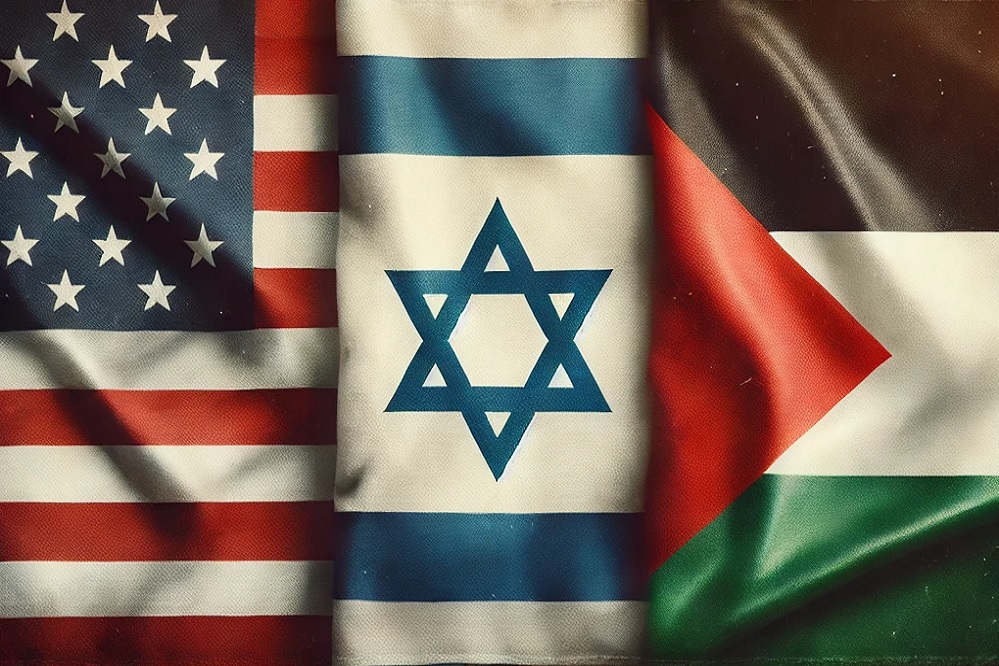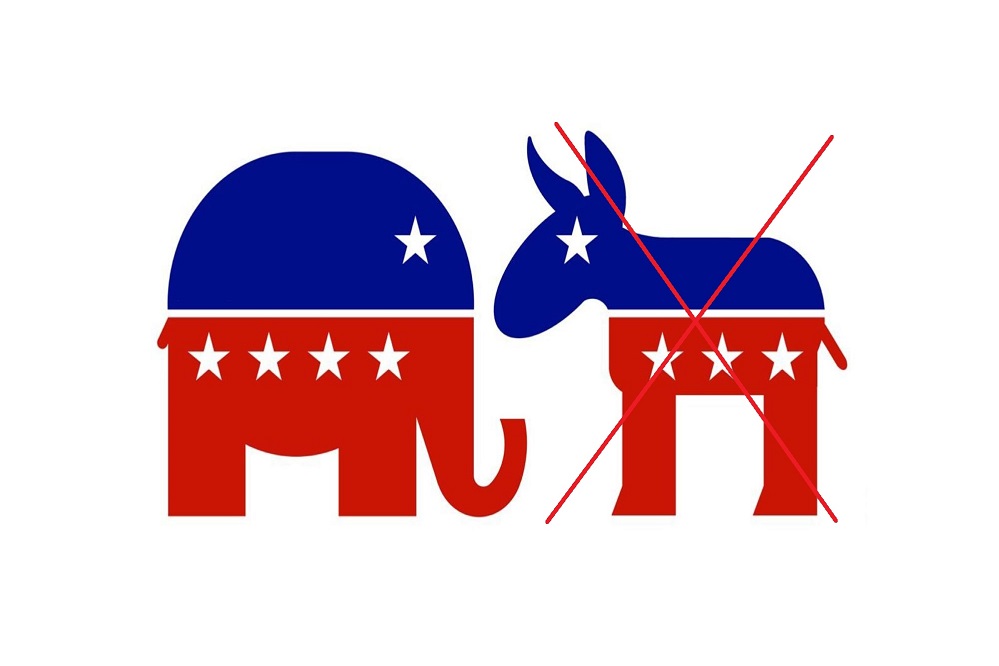The war between Hamas and Israel has thrust the Middle East to the brink of catastrophe, polarizing nations, communities, and leaders. With each airstrike and counterattack, the region edges closer to an irreversible breaking point. For the Trump administration, tasked with brokering peace, this moment demands more than diplomacy—it requires an honest reckoning with the historical forces and hypocrisies that have shaped the modern conflict.
The Holocaust is often invoked as a justification for the state of Israel and its actions, but its history, alongside the displacement of Palestinians and the rise of Hamas, must be examined critically. This is not just a story of victimhood and aggression but of cycles of conquest, retribution, and survival that stretch back millennia. The Trump administration must confront these truths with clarity and courage to create a foundation for lasting peace.
This article delves into the complexities of the Holocaust, the creation of modern Israel, the rise of Hamas, and the potential complicity of global intelligence agencies like the CIA and MI6, as well as the Biden administration. By addressing these issues openly, we can better understand the steps needed to stabilize the Middle East.
Part I: The War in Gaza—A Modern Holocaust?
The current war between Hamas and Israel has been described by some as a “holocaust” of Gaza. Entire neighborhoods have been obliterated, thousands killed, and millions face inhumane living conditions. For Palestinians, this is not just a war but a continuation of decades of displacement and systematic oppression.
Netanyahu’s Biblical Rhetoric
Israeli Prime Minister Benjamin Netanyahu has compared Hamas to the biblical Amalekites, a tribe commanded to be annihilated in the Old Testament. This rhetoric has fueled accusations that Israel is using religious narratives to justify actions many view as disproportionate or even genocidal. Gaza remains a symbol of suffering, with critics describing it as an open-air prison where a humanitarian crisis has become the norm.
Israel argues that its actions are a matter of self-defense. Hamas’s attacks, including the October 7, 2023 assault, have reinforced Israel’s belief in the need to protect its citizens at all costs. But this justification has reignited global debates about morality, proportionality, and the responsibility of a state to uphold international norms.
Part II: Israel’s History in the Promised Land—Conquest and Hypocrisy
The history of Israel is deeply rooted in conquest and displacement. After fleeing slavery in Egypt, the Israelites entered the Promised Land and carried out what can only be described as acts of genocide against the tribes that lived there. According to the Bible, the Israelites were commanded to annihilate every man, woman, and child among the Moabites, Hittites, Canaanites, Jebusites, Philistines, and Amalekites.
These actions, celebrated in the scriptures, laid the foundation for centuries of bloodshed in the region. The displacement of Palestinians in 1947 mirrors this ancient pattern, where the roles of oppressor and victim blur. Modern Israel’s policies, from the blockade of Gaza to the expansion of settlements, echo the aggressive territorial claims of its biblical past.
By invoking this history, Netanyahu and others within the Israeli government frame their actions as part of a divine mandate. However, such rhetoric undermines efforts for peace and fuels animosity between Israelis and Palestinians.
Part III: The Impossible Oversight—October 7th Attacks
The October 7th Hamas attacks, while devastating, raise serious questions about Israel’s intelligence operations. How could a nation renowned for its advanced surveillance capabilities—including drone technology, cell phone tracking, and precision strikes that have eliminated terrorist leaders using pagers—be caught off guard by such a large-scale assault? Israel’s intelligence apparatus, known for pinpointing targets with extraordinary accuracy, makes this scenario seem not only improbable but virtually impossible.
Potential Complicity
Speculation suggests that Israel, along with intelligence agencies like the CIA and MI6, may have knowingly allowed the attacks to occur—or even backfunded them—to justify a massive military campaign against Gaza. The subsequent retaliation can be seen as a calculated attempt to holocaust the Gaza Strip with the world’s approval. This strategy mirrors the “false flag” approach used by the Bush administration, which invoked nonexistent weapons of mass destruction to justify the invasion of Iraq.
By creating its own 9/11 moment, Israel may have sought to manipulate global narratives, using the suffering of civilians as collateral damage in a broader geopolitical strategy for dominance and control. This possibility demands rigorous scrutiny, as the implications extend far beyond the immediate conflict.
Part IV: The Role of Globalist Agendas
The Middle East, with its vast oil reserves and strategic importance, has always been a focal point for global powers. Groups like the Bilderbergs and other elites benefit from prolonged conflict in the region, as rising oil prices and arms sales enrich multinational corporations. The October 7th attacks and Israel’s subsequent retaliation align suspiciously well with these interests.
Allowing—or even facilitating—the escalation of violence ensures global approval for actions that would otherwise be condemned. This manipulation of public perception, driven by media narratives, ensures that the cycle of violence continues for the benefit of a few.
Part V: Media Control—Shaping the Narrative
Israel’s influence extends far beyond military power, reaching deeply into the global media landscape. Jewish ownership of major Hollywood studios and mainstream news outlets creates a powerful narrative machine that frames Israel as a perpetual victim and silences dissent. However, this media dominance is further bolstered by laws and policies in the United States that actively discourage criticism of Israel and compel favorable reporting, creating a one-sided portrayal of the Israeli-Palestinian conflict.
Legal and Systemic Barriers to Open Discourse
Laws such as the anti-Boycott, Divestment, and Sanctions (anti-BDS) measures in several U.S. states legally prohibit contractors from participating in boycotts against Israel. These laws, upheld by courts, restrict the ability of individuals and businesses to express dissenting views about Israeli policies without risking financial penalties or exclusion from government contracts【39†source】【41†source】.
Moreover, long-standing public relations strategies, such as Hasbara (the Hebrew term for propaganda), have been systematically implemented since the 1980s to ensure favorable coverage of Israel. These strategies include media outreach programs, “training” for journalists, and the dissemination of narratives that emphasize Israel’s strategic importance to the West while downplaying or justifying controversial actions, such as settlement expansions or military operations in Gaza【41†source】.
Selective Reporting
Mainstream U.S. media outlets have been widely criticized for their biased reporting on the Israeli-Palestinian conflict. Research has shown that headlines and stories disproportionately focus on Israeli victims while marginalizing the experiences of Palestinians. For instance, data analysis of major outlets like The New York Times and The Washington Post found that Israeli deaths were far more likely to receive prominent coverage than the significantly higher Palestinian death tolls during the October 2023 conflict【40†source】【42†source】.
Palestinian voices are often excluded or dismissed, and criticisms of Israeli policies are swiftly labeled antisemitic, effectively stifling open dialogue. This selective reporting ensures that the broader public remains unaware of the full extent of the humanitarian crisis in Gaza and the historical context of the conflict.
False and Fanatical Religions Drunk with the Blood of the Holy Ones
At the heart of many global conflicts lies the influence of false and fanatical religions. Revelation 17:6 describes a symbolic “woman” drunk with the blood of the holy ones, representing corrupt religious systems that have persecuted true believers throughout history. These religions have not only incited violence and division but have also wielded power through manipulation and control.
Their fanaticism perpetuates cycles of hatred and bloodshed, with extremist ideologies placing conquest and domination above compassion and coexistence. Whether through radicalized factions of Islam, militant Zionism, or other zealot groups, the influence of these systems continues to destabilize nations and exploit vulnerable populations.
A Biblical Call to Action
The Bible foretells that God will put it into the hearts of political entities to turn against and destroy these false and fanatical religions (Revelation 17:16-17). This divine intervention is described as a necessary step toward achieving global peace and security. By eliminating systems that are “drunk with the blood of the holy ones,” the world can move closer to an era of harmony, free from the corruption and exploitation of extremist ideologies.
A Universal Foundation for Peace
A universal approach rooted in basic Christian values—emphasizing love, forgiveness, and mutual respect—offers an alternative to the divisiveness of false religions. Such a foundation would foster global unity while allowing diverse cultures to retain their individuality. By replacing religious fanaticism with a balanced spiritual framework, humanity could begin to address the root causes of many conflicts and move toward genuine reconciliation.
Part VI: The Trump Administration’s Role
For the Trump administration, navigating this crisis requires courage and honesty. Blindly supporting Israel without addressing its historical and modern wrongs will only perpetuate the conflict. At the same time, Hamas’s tactics, while born of desperation, cannot be condoned. The path to peace lies in recognizing the humanity of both sides and holding all parties accountable.
Key Actions for the Trump Administration
- Demand transparency from Israel regarding its intelligence failures—or complicity—surrounding the October 7th attacks. The administration must press for clarity on the extent of Israel’s knowledge of the attacks and investigate whether Israel, along with intelligence agencies like the CIA and MI6, had advance knowledge or possibly even allowed the assault to unfold for strategic purposes. This transparency will be key in rebuilding trust with the global community and ensuring accountability.
- Investigate the role of the CIA, MI6, and the Biden administration in potentially turning a blind eye to the escalation. The Trump administration must thoroughly examine the possible roles that other intelligence agencies and the Biden administration may have played in ignoring or underestimating the threat posed by Hamas, as well as the potential geopolitical motivations that could have influenced their inaction. This investigation must be done with the utmost commitment to uncovering the truth, no matter how uncomfortable it may be.
- Advocate for an end to the blockade of Gaza and the establishment of a viable Palestinian state. The Trump administration should take bold steps to push for the end of Israel’s blockade on Gaza, which has contributed to a humanitarian crisis for over a decade. Additionally, the U.S. must use its influence to push for the establishment of a viable, sovereign Palestinian state, as a means to ensure long-term stability and peace. This approach should focus on creating a two-state solution that respects the rights and self-determination of both Israelis and Palestinians.
- Reassess U.S. financial and military support to Israel. The U.S. should re-evaluate its financial and military aid to Israel to ensure that it does not enable human rights violations or actions that perpetuate violence. This should be done with an eye on ensuring that American tax dollars are not used to fund oppressive policies that undermine peace efforts in the region.
- Promote a balanced and honest dialogue. The Trump administration must facilitate an open and honest dialogue between Israel and Palestine, acknowledging both sides’ narratives and concerns. This dialogue should be based on the principles of mutual respect, justice, and the shared desire for lasting peace, with no side silenced or marginalized. It’s essential to bring all relevant stakeholders to the table, including moderate voices from both Israeli and Palestinian communities, as well as regional partners and international organizations that can help mediate the peace process.
Conclusion: A Call for Honest Leadership
The Middle East conflict is a microcosm of humanity’s darkest tendencies—conquest, displacement, and survival at any cost. To break this cycle, the Trump administration must lead with integrity, addressing the historical and modern complexities of the Israeli-Palestinian conflict.
This moment demands more than diplomacy; it requires an unflinching commitment to justice, transparency, and the truth. By doing so, America can redefine its role—not as a partisan actor but as a beacon of hope for a lasting peace.
By confronting these unspoken truths and demanding accountability from all parties, the Trump administration can lay the groundwork for lasting stability in the Middle East. Anything less risks perpetuating the violence and suffering that have plagued the region for generations.




